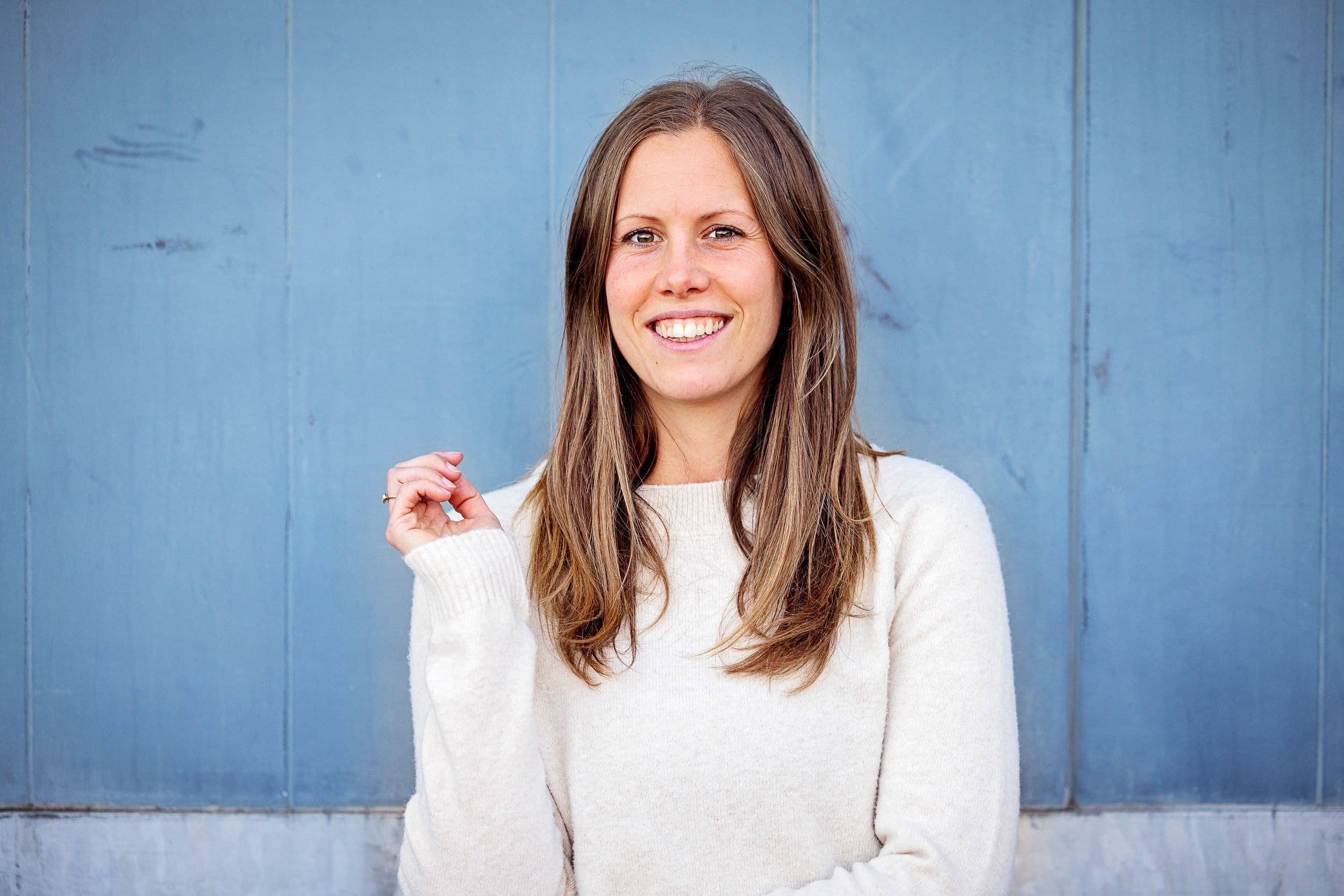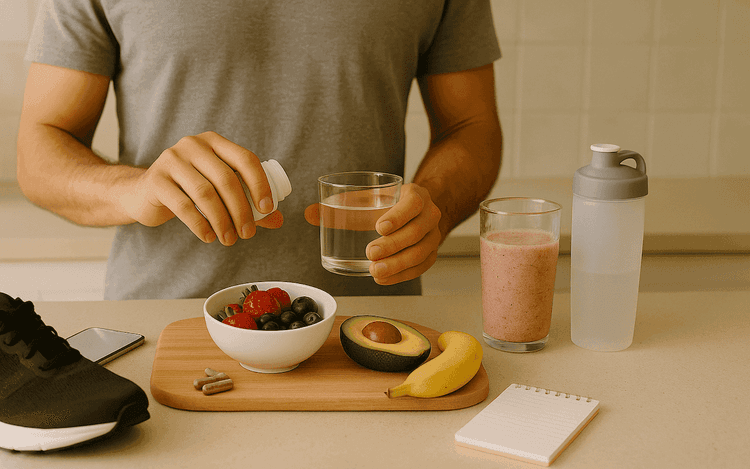How Simon Boosted His Sperm Quality and Welcomed a Healthy Baby

Mona Bungum
Article
7 min

Simon’s story shows how small lifestyle changes, medical guidance, and patience can improve sperm health and make fatherhood possible.
Infertility can be a quiet challenge for many couples, but stories like Simon and Laura’s show that with knowledge, small lifestyle changes, and the right support, progress is possible. Their journey proves that science, patience, and persistence can lead to hope and, ultimately, a healthy baby.
When Simon and Laura began trying for a baby, they assumed it would happen naturally. After months of disappointment, worry started to set in. Like most couples, they began by exploring female fertility. But test results brought a surprise: Simon’s sperm count and motility were lower than normal.
“I thought fertility issues were mostly a woman’s thing,” Simon admitted. “But learning that half of infertility cases involve men completely changed how I saw it.”
Guided by a fertility specialist and determined to make changes, Simon discovered that sperm health can be improved. Within three months, his test results had transformed, and one year later, Laura was pregnant.
Understanding Sperm Health
Before making lifestyle changes, Simon wanted to understand what “sperm health” actually meant. His doctor explained that sperm quality is assessed through several key parameters:
| Parameter | What It Means | Why It Matters |
|---|---|---|
| Count | Number of sperm per milliliter of semen | Higher count means a greater chance one will reach the egg. |
| Motility | How efficiently sperm swim | Sperm must move strongly and steadily to reach the egg. |
| Morphology | Sperm shape and structure | Misshapen sperm struggle to penetrate the egg. |
| DNA quality | Integrity of the sperm’s genetic material | Damaged DNA can reduce fertility and increase miscarriage risk. |
Sperm take around two to three months to develop, meaning healthy changes today influence fertility results in the coming months. For men curious about how this process is measured, it helps to understand what to expect during male fertility testing.
Simon’s Plan to Improve Sperm Health
1. Optimizing His Diet
Simon started with small, manageable shifts. He swapped processed snacks for fruit, began cooking more, and aimed for balance over perfection.
He filled his plate with:
- Fruits and vegetables rich in antioxidants
- Nuts and seeds providing zinc and selenium
- Fish twice a week for omega-3s
- Whole grains and legumes for folate and B-vitamins
He also cut back on alcohol and sugary drinks. “I didn’t realize how much food affects fertility,” he said. “Within weeks, I felt more energetic, and over time, it showed in my results.”
A Mediterranean-style diet similar to the one described in how to support your fertility journey with nutrition and lifestyle offers the same foundation for long-term reproductive health.
2. Staying Active Without Overdoing It
Simon added moderate exercise to his daily routine. He walked or cycled for about 30 minutes most days and lifted light weights twice a week. Regular, moderate activity improved his hormone balance and circulation while reducing stress.
“I learned it wasn’t about doing more,” he said. “It was about staying consistent.”
3. Managing Weight and Sleep
When Simon began, he was about 20 pounds overweight. Even modest weight loss helped restore his testosterone levels and energy.
He also committed to getting seven to eight hours of sleep each night, avoiding screens before bed, and sticking to a routine. His doctor reminded him that good sleep helps regulate hormones like testosterone and LH, which are vital for sperm production.
4. Avoiding Hidden Harmers
Simon made several practical changes to protect his sperm from damage. He quit smoking, limited alcohol, and reduced heat exposure by choosing loose boxers, keeping laptops off his lap, and avoiding long, hot baths.
He also began using glass containers instead of microwaving food in plastic, reducing his exposure to chemicals linked with fertility issues. For couples looking to take similar precautions, creating a toxin-free home for growing your family explains how everyday choices can protect reproductive health.
5. Managing Stress Differently
The emotional toll of trying to conceive surprised Simon. He often felt anxious and frustrated, especially after months without progress.
With encouragement from Laura, he started meditating for ten minutes a day and joined a small men’s group where others shared similar experiences. “It helped me stay calm and connected to my partner,” he said. “It reminded me that we were in this together.”
6. Working With a Fertility Specialist
Simon’s fertility doctor monitored his progress with semen analysis and additional tests, including hormone levels and DNA fragmentation. These helped confirm improvement and ruled out other conditions such as varicocele or infection.
By month four, his sperm count had nearly doubled, motility improved by 60 percent, and DNA fragmentation levels dropped sharply. For those interested in understanding how DNA integrity affects conception, what is sperm DNA fragmentation and why it matters for male fertility provides a detailed explanation.
Two cycles later, Laura was pregnant.
The Result: A Healthy Baby and a Healthier Life
Nine months later, Simon held his newborn daughter in his arms.
“All those small changes — the food, the walks, the patience — made sense,” he said. “It wasn’t just about having a baby. It was about being healthy enough to enjoy being a father.”
Simon’s story proves that male fertility isn’t static. With the right guidance, small habits can make a major difference. You can learn more about practical lifestyle adjustments in how to prepare for a semen analysis and sperm quality vs quantity, male fertility explained.
Your Fertility Roadmap
If you’re starting your own fertility journey:
- Get tested early. Understanding your baseline helps you take control.
- Start small and stay consistent. Incremental change adds up.
- Be patient. It takes around three months for sperm to renew.
- Support your partner. Fertility is shared, not separate.
- Seek professional help. Expert evaluation ensures you’re on the right path.
At Conceivio, we believe every fertility journey is unique. Our digital tools help you take confident steps toward parenthood. Download the Conceivio App to access trusted resources, track your progress, and connect with compassionate fertility experts.


















